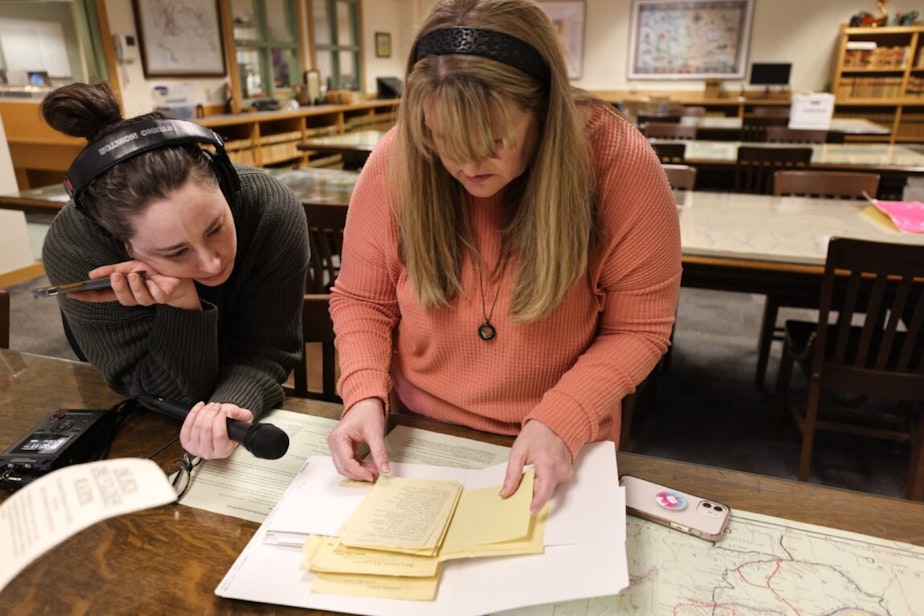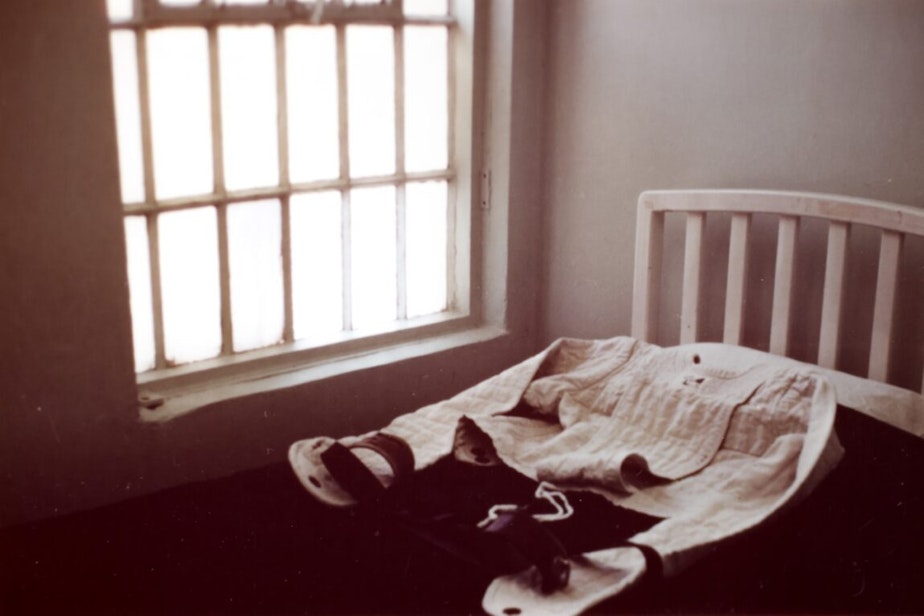Who was Lillian Massey? A journey to Northern State psychiatric hospital

Carrie Davidson sat in the backseat. Her mom drove.
Her grandma, who had just turned 95, rode shotgun.
“We had taken her out driving around Seattle, like to the places where she used to live, just trying to jog her memory and get her talking,” Carrie said.
When her grandpa came up in conversation, Carrie wondered aloud: What was his mom’s name?
From the front seat, her grandma piped up: “Lillian Massey.”
Sponsored
Carrie knew her grandfather had been adopted, but it was so long ago — in 1925 — she didn't think she'd ever know who his birth mother was. He struggled with alcoholism when he was alive. His kids struggled too, in different ways, as if an unhealed wound was passed from one generation to the next.
Carrie decided to find Lillian.
In Episode 3 of Lost Patients, we follow Carrie’s journey to Lillian, who died in 1934 at Northern State Hospital, a psychiatric hospital for more than half a century. It was closed in 1973.
Before then, tens of thousands of people passed through this compound, many of them from Seattle. Thousands died here. Today, it's mostly a ruin.
Northern State Hospital is how psychiatric care used to look in the U.S. — sprawling campuses of ornate buildings where people spent years, decades, under the care of psychiatrists and nurses employed by the state government. At one point, at their peak, half of all hospital beds in the U.S. were in these institutions.
Sponsored
To hear the story, click on the audio above, or listen wherever you get your podcasts.

Lost Patients is a production of KUOW Public Radio and The Seattle Times, in partnership with the NPR Network.
You can support Lost Patients by investing in the local newsrooms and the specialized beats that make this sort of storytelling possible. Please consider joining and subscribing at kuow.org and seattletimes.com.
This episode was reported, written, and produced by Sydney Brownstone, Esmy Jimenez, and Will James. Liz Jones is the editor.
Looking for mental health resources? KUOW compiled an "Acute mental health resource guide" that can help.






